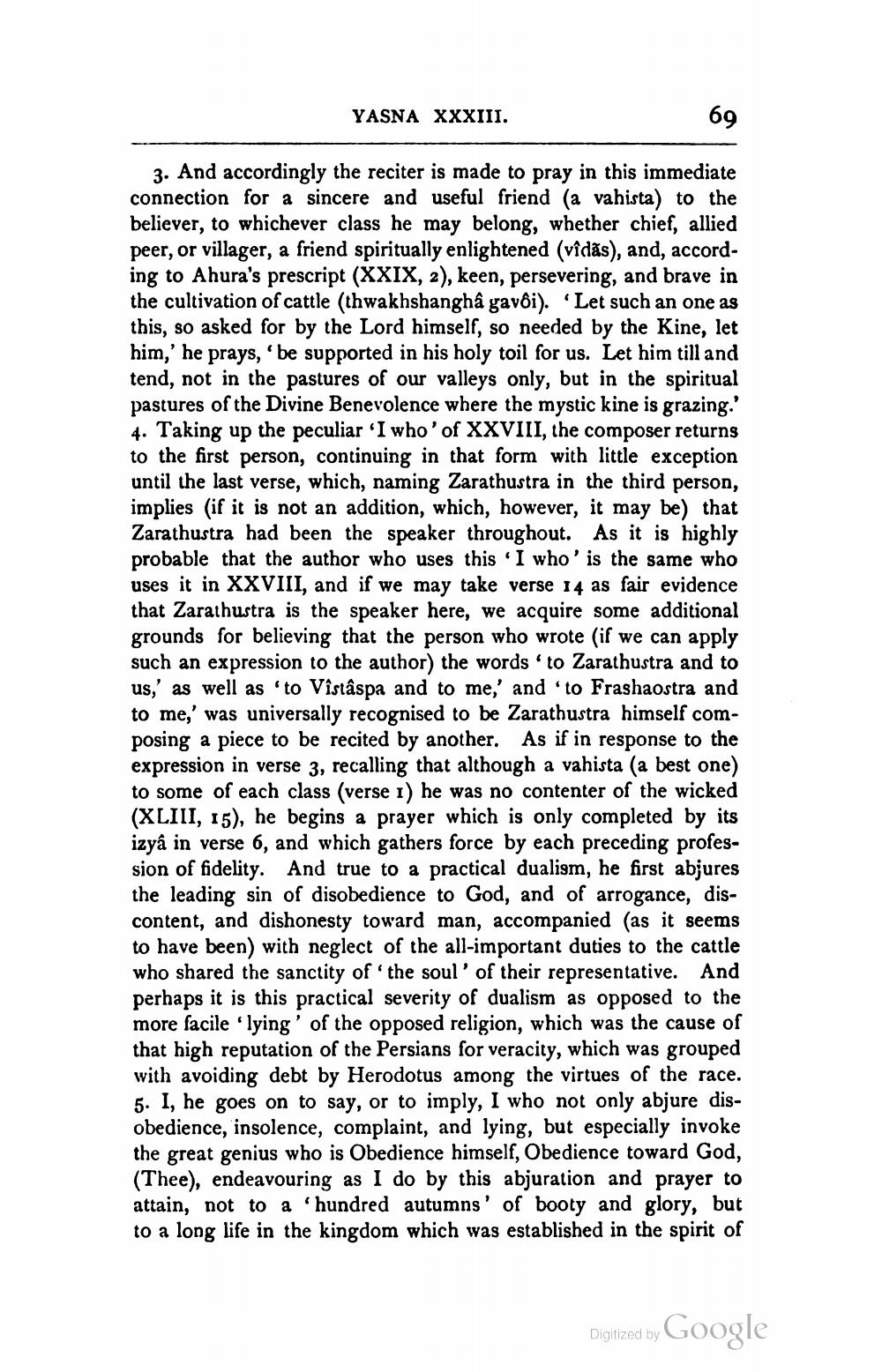________________
YASNA XXXIII.
3. And accordingly the reciter is made to pray in this immediate connection for a sincere and useful friend (a vahista) to the believer, to whichever class he may belong, whether chief, allied peer, or villager, a friend spiritually enlightened (vidas), and, according to Ahura's prescript (XXIX, 2), keen, persevering, and brave in the cultivation of cattle (thwakhshangha yavôi). "Let such an one as this, so asked for by the Lord himself, so needed by the Kine, let him,' he prays, 'be supported in his holy toil for us. Let him till and tend, not in the pastures of our valleys only, but in the spiritual pastures of the Divine Benevolence where the mystic kine is grazing.' 4. Taking up the peculiar 'I who' of XXVIII, the composer returns to the first person, continuing in that form with little exception until the last verse, which, naming Zarathustra in the third person, implies (if it is not an addition, which, however, it may be) that Zarathustra had been the speaker throughout. As it is highly probable that the author who uses this I who is the same who uses it in XXVIII, and if we may take verse 14 as fair evidence that Zarathustra is the speaker here, we acquire some additional grounds for believing that the person who wrote (if we can apply such an expression to the author) the words to Zarathustra and to us,' as well as 'to Vistâspa and to me,' and 'to Frashaostra and to me,' was universally recognised to be Zarathustra himself composing a piece to be recited by another. As if in response to the expression in verse 3, recalling that although a vahista (a best one) to some of each class (verse 1) he was no contenter of the wicked (XLIII, 15), he begins a prayer which is only completed by its izyâ in verse 6, and which gathers force by each preceding profession of fidelity. And true to a practical dualism, he first abjures the leading sin of disobedience to God, and of arrogance, discontent, and dishonesty toward man, accompanied (as it seems to have been) with neglect of the all-important duties to the cattle who shared the sanctity of the soul' of their representative. And perhaps it is this practical severity of dualism as opposed to the more facile 'lying' of the opposed religion, which was the cause of that high reputation of the Persians for veracity, which was grouped with avoiding debt by Herodotus among the virtues of the race. 5. I, he goes on to say, or to imply, I who not only abjure disobedience, insolence, complaint, and lying, but especially invoke the great genius who is Obedience himself, Obedience toward God, (Thee), endeavouring as I do by this abjuration and prayer to attain, not to a hundred autumns' of booty and glory, but to a long life in the kingdom which was established in the spirit of
Digitized by
Digitized by Google




